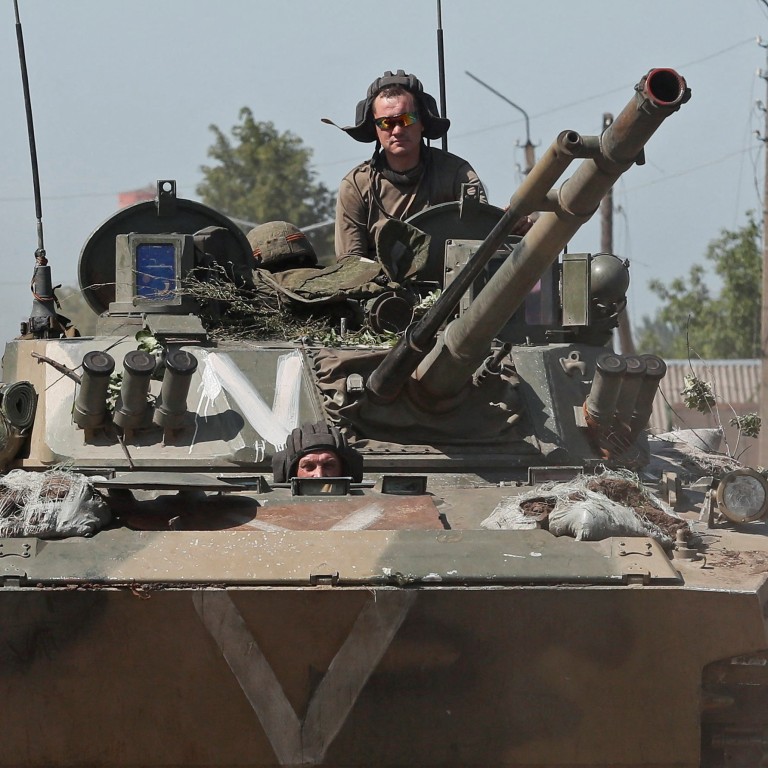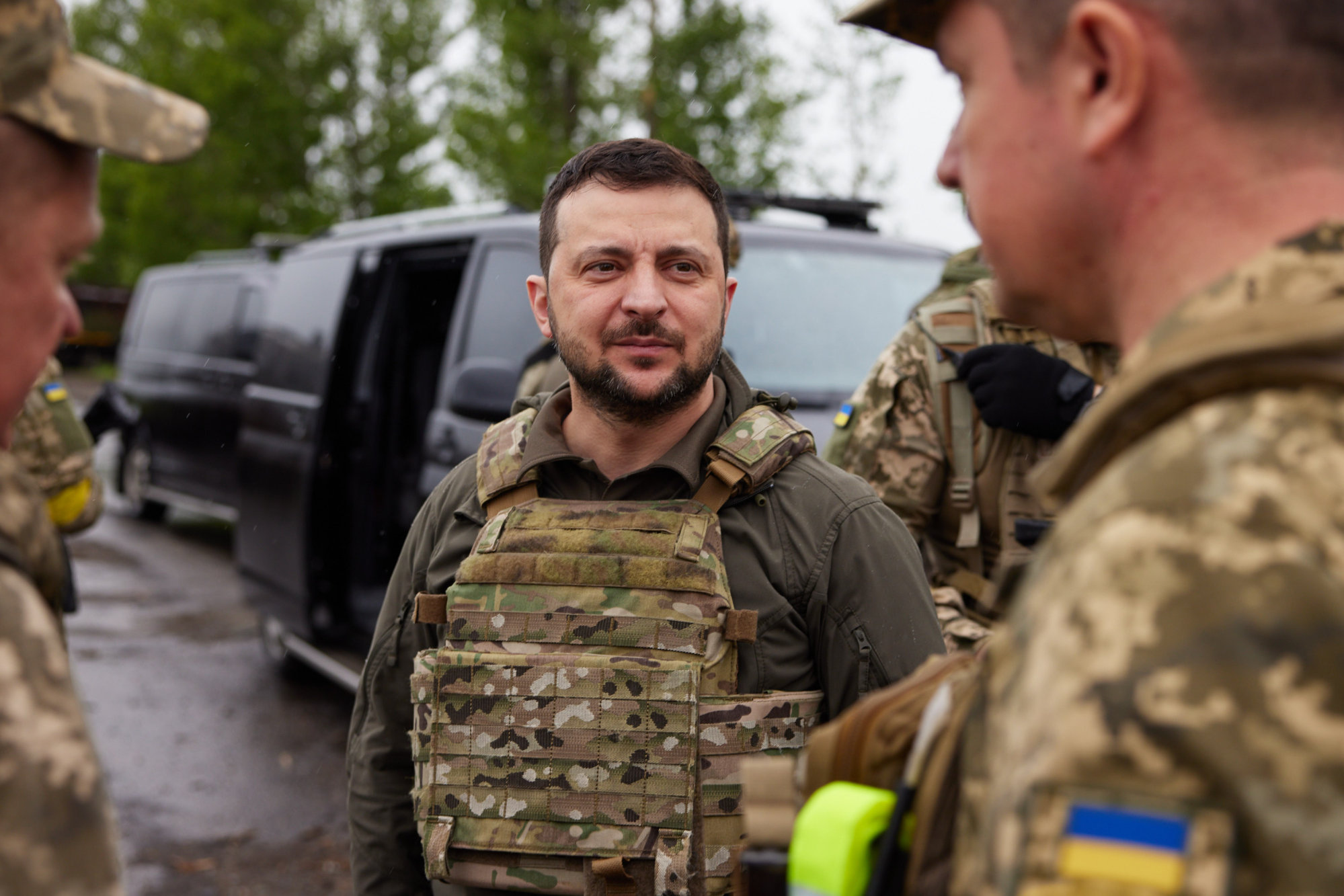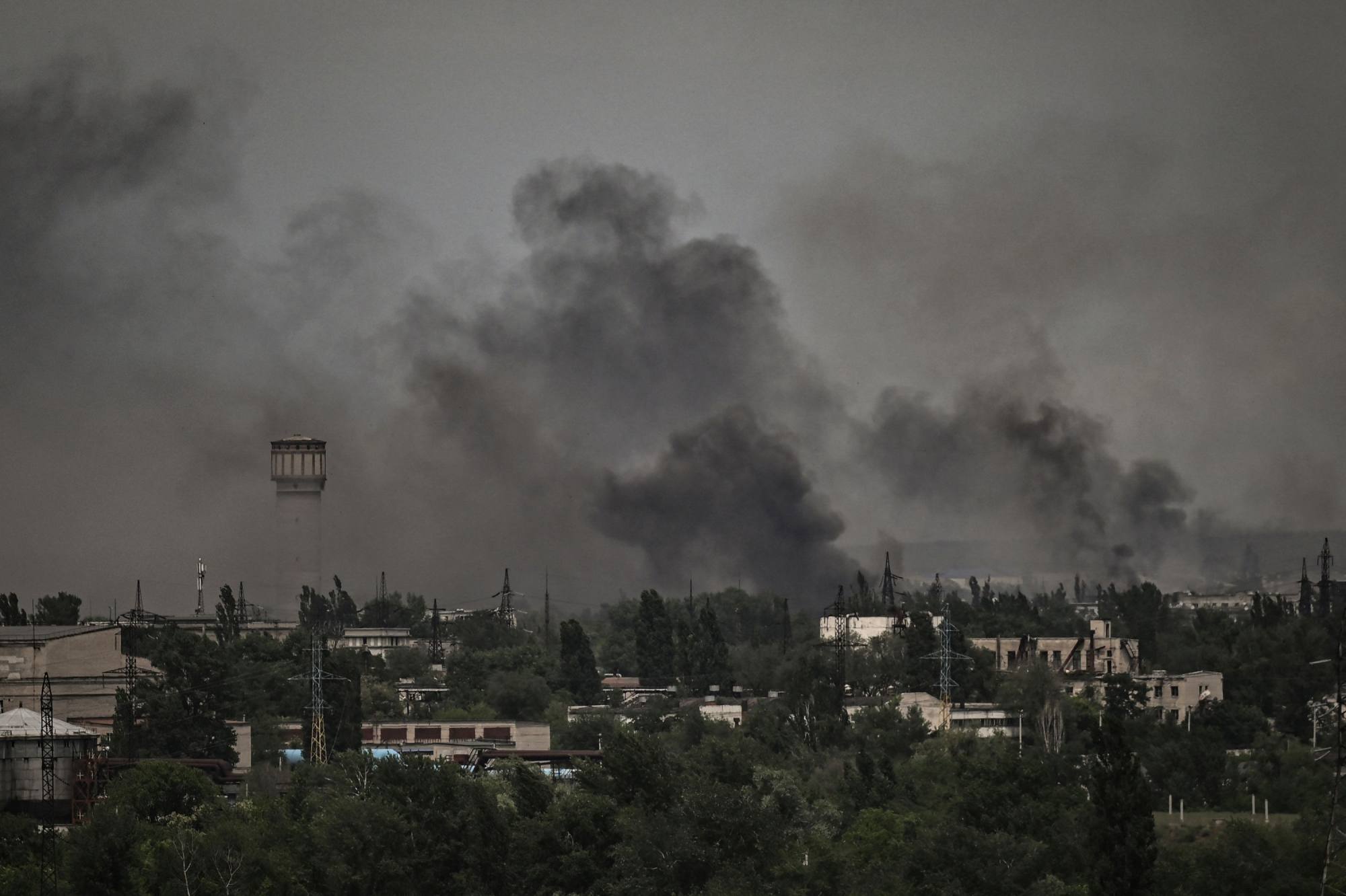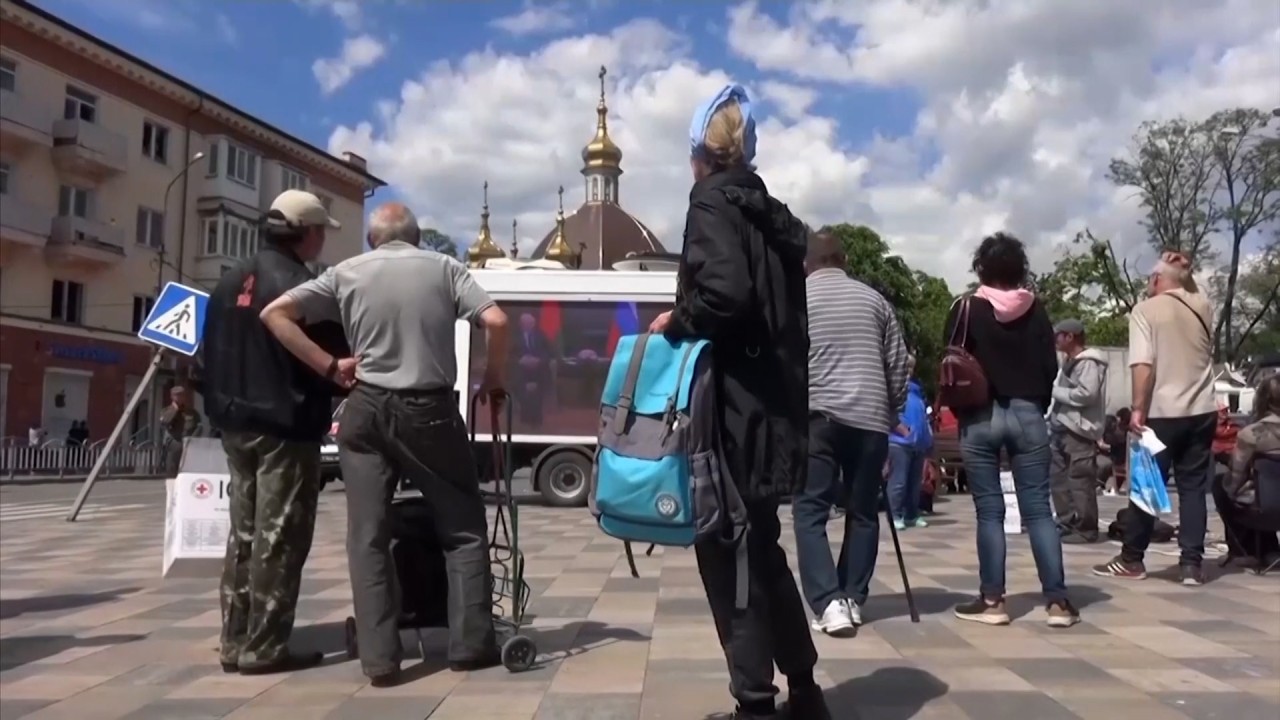
Russia controls fifth of Ukraine, Zelensky says as war enters 100th day
- Battle for Ukraine’s east rages 100 days since Russia invaded its neighbour on February 24
- Russian troops appear closer to fully capturing the key Ukrainian city of Sievierodonetsk
Ukraine marked 100 days since Russia’s invasion on Friday with fighting raging across the east of the country.
The war milestone came as Kyiv announced Moscow was now in control of a fifth of Ukrainian territory, including Crimea and parts of the Donbas seized in 2014.
“As of today, 20 per cent of our territory is under the control of the occupiers,” Ukraine’s President Volodymyr Zelensky said in a video statement to the Luxembourg parliament on Thursday, the equivalent to 125,000 sq km.
“That’s more than the entire Benelux,” said Zelensky, using a common term used for Belgium, the Netherlands and Luxembourg. He also noted that the front line between the warring countries now extended over 1,000km.
Russian troops had occupied a total of some 3,260 communities – many of which had subsequently been liberated – since the invasion began in February, Zelensky said, adding that the Ukrainian army was determined to prevent the fall of the administrative centre of Sievierodonetsk, which has been the subject of fierce fighting for days in which Russian forces and separatist troops loyal to Moscow appear to have the upper hand.
“The situation is difficult, but it is better than yesterday. And it is under control,” the deputy chief of Ukraine’s general staff, Oleksiy Hromov, said in Kyiv.
Funeral held for ‘hero’ Russian pilot shot down in Ukraine
Moscow’s forces have taken control of “most” of Sievierodonetsk, Britain’s Defence Ministry said in a briefing Thursday, while both Ukrainian and Russian sources said that some 800 civilians were sheltering in bunkers underneath a chemical factory.
“These are locals who were asked to leave but refused. There are also children there, but not very many,” Luhansk Governor Serhiy Gaidai told CNN.
Despite the advance of Russian troops through the city, the factory was reportedly being defended by Ukrainian soldiers.
A spokesperson for the pro-Russian separatists in Luhansk accused the Ukrainian forces of luring civilians into the factory and preventing them from leaving, in remarks reported by Tass.
Russia taking full control of Sievierodonetsk would be an important milestone in the conflict, as it would give Russia full control of the entire Donbas region, one of the key aims of its invasion.
Zelensky also noted in his speech that Ukraine already considered itself part of the European Union, adding: “I believe that Ukraine is already showing by its actions that it meets the European criteria”.

Without mentioning Russian President Vladimir Putin by name, he said: “You have to stop this individual from destroying European values. If we do not manage together to stop this man, then these are dark hours – dark hours that we have already experienced in the Second World War”.
Zelensky once again called for further EU sanctions on Russia and the delivery of more heavy weaponry.
A White House pledge this week of US$700 million of weapons including advanced rocket systems have been greeted with a touch of scepticism by some of those watching their homes pummelled and cities overrun.
In 100 days, Russia’s invasion of Ukraine turns to war of attrition
“It’s already running late,” said Gaidai, Luhansk’s governor
“Our Western partners are helping us, but the quantity of weapons and ammunition that they are providing are not enough,” he said in an interview.
Zelensky said “tens of thousands” have been killed since Russia launched what Ukraine says was an unprovoked invasion on February 24.

Russia says it is engaged in a “special military operation” to disarm Ukraine and rid it of ultranationalists the Kremlin says threaten Russian security.
After overstretching their supply lines in the early weeks of the war, Russian forces were forced to withdraw from positions around the capital Kyiv and other northern regions.
Weapons for Ukraine: Who has sent what?
But in recent weeks they have put Ukraine on the back foot in eastern Ukraine by concentrating overwhelming fire power on a relatively small front.
Russia is advancing slowly, just 500-1,000 metres per day compared to the tens of kilometres envisaged by their military doctrine when using their current tactics, a Western defence official said.
The focus on artillery is in part determined by the weakened state of Russian ground forces, whose combat effectiveness is around just 50 per cent of full capacity, the Western defence official said, estimating Moscow had lost over 40,000 troops to death or injury.
But the tactic is also inflicting unrelenting damage to the Ukrainian forces on the front line, with the government estimating losses of 100 troops a day and 450-500 wounded.
The intensity of fire is preventing Ukrainian forces from being rotated, deepening fatigue levels.
While Ukraine is impressing with very smart tactics and strategies and organisation, “no one can deny that the Ukrainians have been taking hit after hit” said Joerg Forbrig, at the German Marshall Fund in Berlin.
“Russia has a lot more to pour into this war than the Ukrainians have,” he said.
Following White House talks with US President Joe Biden, Nato chief Jens Stoltenberg warned Thursday that Ukraine’s allies needed to brace for a gruelling “war of attrition”.
“We just have to be prepared for the long haul,” Stoltenberg said, while reiterating that Nato does not want direct confrontation with Russia.
dpa, Reuters and Agence France-Presse

